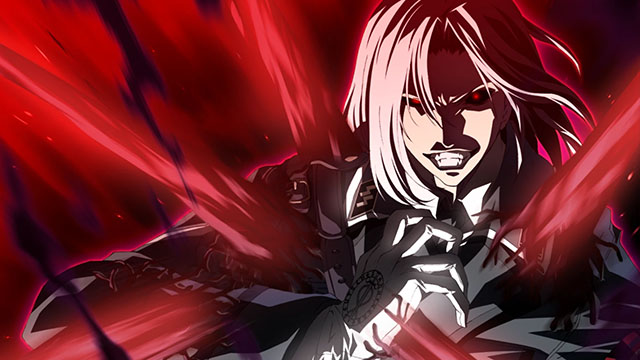

I’ve never read any Goethe besides ‘The Sorrows of Young Werther’, and even then I absolutely love Ren’s chant which is based on the most famous line in Faust: ‘Halt, O Time, for thou art fair beyond measure.’ I don’t need to get the reference to appreciate the beauty of the line (though an ignorance of the context belies its bittersweet nature, as the moment’s sweet ephemerality is preserved by immediate death). It traverses the bullshit boundaries of so-called ‘high’ and ‘low’ art effortlessly within the same scene, with characters screaming out improvised verses from the Völsunga saga in hopes of receiving a power-up in what is effectively a rap battle. Indeed, much of Dies Irae’s pretentiousness can be easily explained away as an unabashed celebration of European art, language, and philosophy.Īnd unlike most pretentious works, it invites the reader to revel in its lush world and genuinely enjoy it for what it is. But just as the presence of pretentiousness does not automatically mean the work is fantastic, the opposite is not true either. As evidence of this, the more powerful a character is, the more given they are to speaking in the Japanese equivalent of Shakespearean English, and the more they obviously enjoy the sound of their own voice. Dies Irae is many things: it is a rich tapestry of characters with exquisitely beautiful metaphors and writing, it’s a chuunibyou power fantasy about getting the girl (all four five of them!) and ROW ROW FIGHT THE POWER, it is a giant metaphor for the World University Debating Championships where a power couple espouses the values of liberté, égalité, fraternité to triumph over literal Nazis, it is a suppressed giggle of an audience member half the theatre can hear in response to an actor’s particularly pretentious and bombastic line, it is a didactic Nietzschean diatribe screaming ‘AMOR FATI’ over and over, when he appropriated the wisdom of Buddhist reincarnation and re-discovered Shambhala … That guy is allegedly Faust btwĭies Irae is absolutely and undeniably pretentious. In terms of a meta-commentary, there is little doubt that Dies Irae’s central author Masada Takashi read nasu’s Fate/Stay Night, and said ‘let me show you how it’s really done’.īut if this leaves you thinking that Dies Irae is merely some pretentious neo- Ulysses text bound to leave you scratching your head when you’re done, that’s where you’re wrong. Juxtaposed against a background of heavy guitars and soaring Christian arias, Dies Irae is undoubtedly one of the finest love letters to Western art and philosophy in Japanese literature.Īnd those are just the textual references. Just as the Renaissance playwrights were enthralled by the rich pagan Greco-Romanic myths which offered a liberality and ethos that Christianity could not, Dies Irae largely abandons (with one big exception) Shinto mythology in favour of European arts, be they Germanic (Goethe, Wagner, Richard Strauss) or Slavic (Antonín Dvořák), as well as the Bible (Section 2 of Verdi’s Requiem being the eponym of the visual novel), because the Japanese think the Bible is cool the same way we think Norse mythology is cool. But it is this very context that distinguishes Dies Irae, a visual novel that despite its play-like nature, resembles the Renaissance plays like Hamlet only to the extent of their rich cultural references to bygone eras.

Regardless of the answer, it is generally thought that the beauty of literature lies within such imaginings, birthed by rich text and fertile mind. Maybe Hamlet was just fundamentally unwise and imprudent, in that every single time he took action he succeeded only in making things worse, and the entire play was just a time-waster of a morality tale meant to slight King James VI?

Or that his anger was rooted in naught but misogynistic fear of perceived the Queen’s female infidelity. One could argue with ease that it was Hamlet’s ill-natured misandry that saw the Danish prince isolated, radicalised, and out of sync with the Court. Literary orthodoxy states that Hamlet’s hamartia was his vacillating indecision, exemplified by the most famous soliloquy in all of English literature: ‘ To be or not to be, that is the question.’ But orthodoxy is a concept defined in opposition. I wish upon your unending star – guide me to heights unknown! Halt, O time, for thou art fair beyond measure.

In a world where only peace is lord, and men join hands in liberty…


 0 kommentar(er)
0 kommentar(er)
